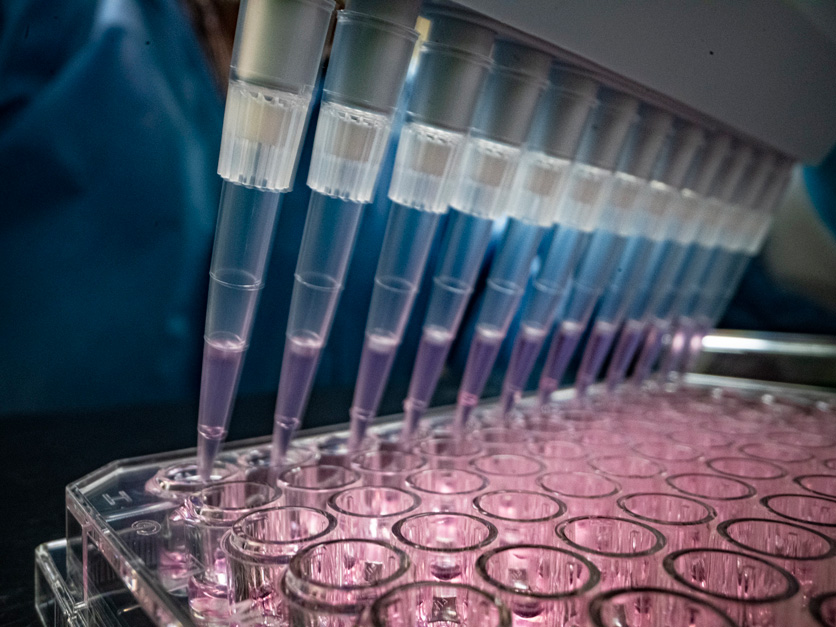Department of Agriculture scientists say a vaccine to combat African Swine Fever is now closer to commercial availability following the clearance of a key regulatory hurdle.
A Monday release from USDA’s Agricultural Research Service declared a vaccine candidate in development by government scientists “does not revert to its normal virulence after being injected into swine.
“This ‘reversion to virulence’ test is required to ensure that the vaccine's weakened form of the ASF virus does not revert to its original state,” the release said.
Senior ARS Scientist Manuel Borca called the news “a critical milestone” for the vaccine candidate.
ARS first announced in September that it had created a vaccine that was shown to offer protection against ASF.
Commercial use around the world will depend on the exact steps required by various governments, but ARS said the safety studies currently underway “are necessary to gain approval for use in Vietnam and eventually in other countries around the world.”
The finding was also highlighted in the April edition of Viruses, an open-access journal published by the Multidisciplinary Digital Publishing Institute.
Looking for the best, most comprehensive and balanced news source in agriculture? Our Agri-Pulse editors don't miss a beat! Sign up for a free month-long subscription.
“It is very hard to predict how selective pressure can cause a live attenuated vaccine to return to virulence,” Douglas Gladue, a senior ARS scientist, said in a release. “In the case of this particular vaccine candidate, ASFV-G-DI177L, we deleted a gene, which makes it difficult for the virus to simply add the gene back. So, we expected reversion to its original form to be unlikely, but the test still has to be performed.”
The virus has yet to be detected in the United States but has spread throughout the world in recent years, including a devastating outbreak in China in 2018 that caused the loss of an estimated 50 million pigs. The disease spread to other countries throughout Asia and was detected last year in the Dominican Republic, leading the U.S. pork industry to call for a “protection zone” around Puerto Rico to prevent the virus from reaching American soil.
For more news, go to www.Agri-Pulse.com.

